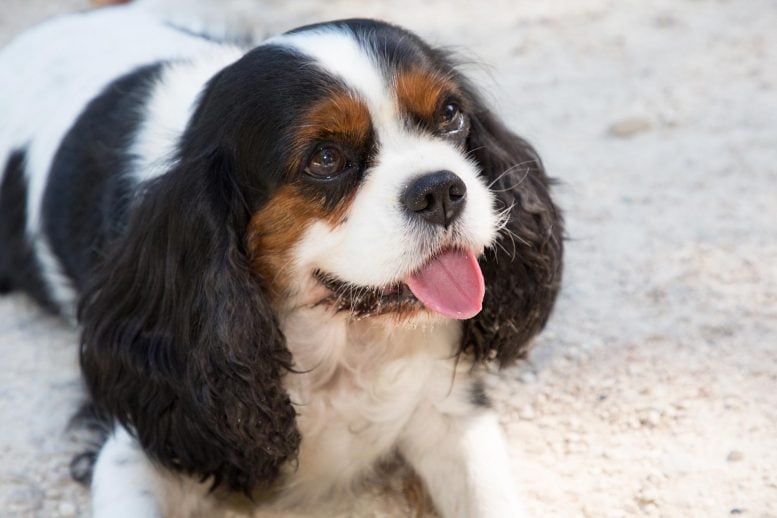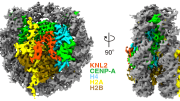Genomic study also identified genetic variants linked to a common heart condition in the breed.
Recent dog breeding practices have loaded up cavalier King Charles spaniels with disease-causing mutations, including variants linked to the common heart condition, myxomatous mitral valve disease (MMVD). Erik Axelsson of Uppsala University and colleagues published these new findings on September 2nd in the journal PLOS Genetics.
The past 300 years of dog breeding have created an incredible diversity of breeds with various sizes, shapes, and abilities. Unfortunately, this process has also caused many breeds to become more inbred and more likely to inherit genetic diseases. The study’s researchers wanted to know whether recent breeding practices had increased the number of disease-causing variants in dogs. They sequenced entire genomes from 20 dogs from eight common breeds, such as beagles, German shepherds, and golden retrievers. They found that the cavalier King Charles spaniel, which experienced the most intense breeding, carried more harmful genetic variants than the other breeds they examined.

Comparisons of dachshunds with and without signs of heart disease were used to help identify mutations that potentially predispose cavalier King Charles spaniels to develop MMVD. Credit: Måns Engelbrektsson, Swedish Kennel Club, CC-BY 4.0
The researchers also looked for genetic variants in the cavalier King Charles spaniel genomes linked to MMVD. In this condition, the mitral valve in the heart degenerates, allowing blood to leak from the left ventricle back into the left atrium. They identified two genetic variants linked to the disease, which appear to regulate a gene that codes for a common protein in heart muscle. The findings offer a potential explanation for why the cavalier King Charles spaniel is predisposed to develop the disease.
The especially large number of potentially harmful genes in the genomes of cavalier King Charles spaniels, compared to other dogs, likely resulted from its breeding history. Records suggest that small spaniel-type dogs have existed for at least 1,000 years and were popular at royal courts for several hundred years throughout Asia and Europe, including at the court of King Charles II (1630-1685). These spaniels experienced several “bottlenecks” where only a small percentage of the population passed on their genes to the next generation. The bottlenecks may have made the harmful genes more common in the cavalier King Charles spaniel genome before the dog achieved recognition as a breed in 1945.
Axelsson adds, “We find that recent breeding may have led to an accelerated accumulation of harmful mutations in certain dog breeds. In the Cavalier King Charles spaniel specifically, one or several of these mutations affect heart muscle protein NEBL and may predispose this breed to devastating heart disease.”
Reference: “The genetic consequences of dog breed formation—Accumulation of deleterious genetic variation and fixation of mutations associated with myxomatous mitral valve disease in cavalier King Charles spaniels” by Erik Axelsson, Ingrid Ljungvall, Priyasma Bhoumik, Laura Bas Conn, Eva Muren, Åsa Ohlsson, Lisbeth Høier Olsen, Karolina Engdahl, Ragnvi Hagman, Jeanette Hanson, Dmytro Kryvokhyzha, Mats Pettersson, Olivier Grenet, Jonathan Moggs, Alberto Del Rio-Espinola, Christian Epe, Bruce Taillon, Nilesh Tawari, Shrinivas Mane, Troy Hawkins, Åke Hedhammar, Philippe Gruet, Jens Häggström and Kerstin Lindblad-Toh, 2 September 2021, PLoS Genetics.
DOI: 10.1371/journal.pgen.1009726
Funding from Elanco (previously Novartis Animal Health) to KLT covered the generation of WGS data and parts of EA’s salary. Elanco (previously Novartis Animal Health) influenced the choice of dog breeds sequenced in this study, participated in data analysis and edited and reviewed the manuscript. Two grants from the Agria and SKK Research Foundation, one to IL (19969) and one to RH (P2011-0021), provided funding for sampling of dogs. EA was funded by a grant from the Swedish Research council (2016-03826) and a grant from FORMAS (2016-01312), both of which contributed to EA’s salary. KLT is a Distinguished Professor at the Swedish Research Council (D0816101). PB’s salary was funded by a Novartis postdoctoral fellowship. With the exception of Elanco (see above) the funders had no role in study design, data collection and analysis, decision to publish, or preparation of the manuscript.










Be the first to comment on "Cavalier King Charles Spaniels Carry More Harmful Genetic Variants Than Other Dog Breeds"